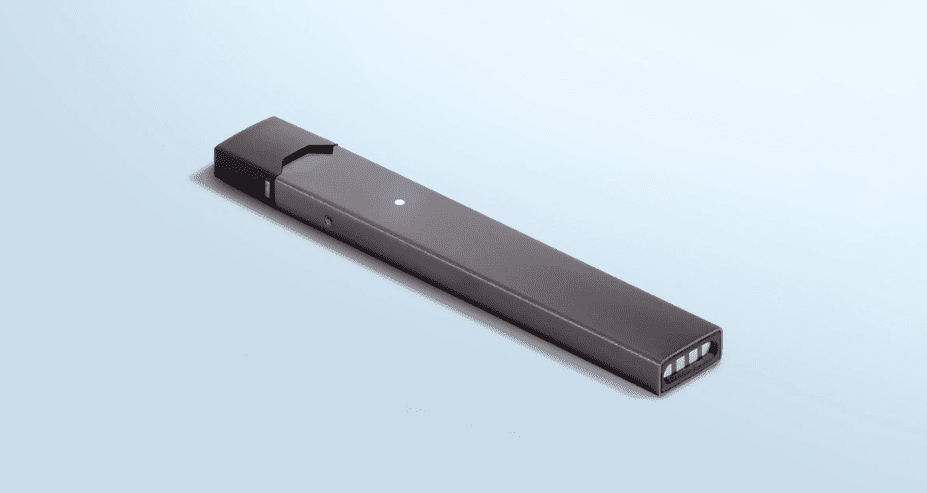[ad_1]
Juul Labs Inc. may be a four-year-old company based out of San Francisco, but Altria Group Inc. (MO), the maker of Marlboro cigarettes, valued the e-cigarettes maker at $38 billion when it invested $12.8 billion late last year for a 35% stake. Juul saw $1.3 billion in revenue in 2018 and forecasts revenue of $3.4 billion for 2019, according to Bloomberg. It controls about three-quarters of the market for non-traditional smoking products. While the product’s popularity has grown considerably in three years, the company manufacturing it has managed to maintain a relatively low profile.
Cigarette smoking has reached the lowest levels ever recorded among U.S. adults, but the market for e-cigarettes is just getting fired up. Over the last few years, e-cigarettes have become synonymous with the company that promises the same nicotine hit as conventional cigarettes with less harm. E-cigarette use has increased by almost 80% for high schoolers and 50% for middle schoolers from 2017 to 2018 — and government regulators are pinning part of the responsibility on Juul.
According to a Wall Street Journal report, in 2018 the Federal Trade Commission began investigating whether the startup used influencers and other marketing to appeal to minors. In addition to this, the Food and Drug Administration is investigating whether e-cigarettes can cause seizures and three reports cited allegedly involve Juul use. According to communications from October obtained by Bloomberg, Mitch Zeller, director of the FDA’s Center for Tobacco Products, emailed former FDA Commissioner Scott Gottlieb and wrote, “No proof of causality, but at a minimum, an association with Juul.”
What Is Juul Labs Inc.?
Juul was spun out of Pax Labs, a San Francisco-based maker of vaporizers in 2017. Started in 2007 by James Monsees and Adam Bowen, Pax itself was earlier called Ploom. Monsees and Bowen are both graduates of the design program at Stanford University. It has raised $13.9 billion in eight funding rounds from the likes of Fidelity Investment, according to Crunchbase. Inc. magazine reported Pax recorded sales growth of 200% in the two years prior to 2015 and sold 500,000 of its vaporizers.
JUUL, the product, was introduced in 2015 and uses a proprietary blend of nicotine developed by the Juul team. According to Bowen, Juul has a “bigger punch” as compared to other, similar products in the market owing to the fact that it contains 10 times as much nicotine as other e-cigarettes. He said the idea behind the blend was to eliminate the need for smokers to go back to cigarettes after an unsatisfying experience with vaping.
As sales for Juul took off, Pax Labs separated the division and incorporated it as a separate company for the products. Tyler Goldman, then CEO of Pax, ran the new company but left in 2017 for new opportunities. Kevin Burns, former head of yogurt maker Chobani, became the new CEO. Monsees is the company’s chief product officer and Bowen is the company’s chief technology officer. Though vaping instruments were designed for tobacco products and not for drugs, the devices developed by Pax have nonetheless become popular with marijuana users, because they are portable and is effective in vaporizing THC from cannabis flowers.
How Has the Government Regulated Juul?
Health experts and government officials have criticized Juul for marketing its products in social media spaces frequented by teenagers. Juul’s advertising campaigns have been likened to those used by Big Tobacco companies decades earlier, which targeted young users in an effort to attract lifelong customers. Juul announced on Nov. 13, 2018 that it would eliminate some its Facebook and Instagram accounts in an effort to limit exposure to younger users.
Even so, deleting its social media accounts can only do so much. According to company officials, more than 99% of all social media content related to Juul is generated from third-party users and companies. On Dec. 17, 2018, an investigation by CNN found that Juul had paid social media influencers to review the product on Instagram and Youtube. Juul has since clarified that the paid influence program was “short-lived” and involved “fewer than 10 paid influencers,” who were collectively paid less than $10,000. The influencer program was formally suspended ended on Oct. 31, 2018.
On Nov. 13, 2018, Juul announced that it would stop selling its flavored pods through more than 90,000 retail stores that carry its products in an effort to prevent teenagers from easily accessing them. It will only sell flavors like mango, cucumber, and creme on its website where users are required to demonstrate proof of age when buying their products. These efforts, though well-intentioned, came only after a Sept. 12, 2018 announcement that the FDA would be investigating the sales and marketing strategies of major e-cigarette makers.
Juul announced on August 28, 2019 that it is providing $100 million in incentives and financial support to retailers that install a new electronic age-verification system.
[ad_2]
Source link Google News

